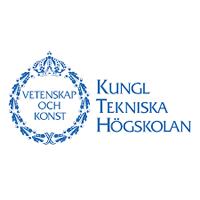About the Project
The research group of RF/microwave/THz MEMS is a part of the Department of Micro and Nano Systems at KTH consisting of more than 50 researchers and doctoral students. Research in RF/microwave/THz MEMS is carried out for applications including telecommunication, radar, medical diagnosis and space instruments, at frequencies from 75 to 750 GHz. The research output of the RF/microwave/THz MEMS group is well recognized internationally, and its doctoral students have received a total of six IEEE Best Paper Awards and four IEEE Graduate Fellowships in recent years. National and international partners in ongoing research collaborations include, for instance, Ericsson (SE), Infineon (DE), Chalmers (SE), CSEM (CH), NASA-JPL (USA), Tokyo Institute of Technology (JP).
The specific research project is on developing novel radar sensors enabled by micromachined sub-THz systems, more specifically a new high-resolution short-range car radar sensor technology operating at 200-300 GHz frequencies. The project is a collaboration project with the major partners Veoneer/Autoliv, Chalmers, Ericsson and Infineon. As a doctoral student you will work in an interdisciplinary research team, you will develop your own millimeter-wave/THz microsystem concepts, you will model and simulate them in state-of-the-art microwave and microsystem design tools, you will fabricate them in the KTH clean-room environment, and you will characterize them in our THz laboratory with existing measurement setups or with setups you still have to develop. You are expected to present your research results at international conferences and to write journal publications for highly ranked microwave, microsystem, and application-oriented scientific journals.
Project funding is provided by the European Commission via the H2020 collaboration project “Car2TERA”, grant agreement 824962 (ICT-07-2018, Electronic Smart Systems).
Funding Notes
Eligibility:
As stated on the project application page (see link below).
Selection:
In order to succeed as an doctoral student at KTH you need to be goal oriented and persevering in your work. In the selection of the applicants, the following will be assessed: (1) ability to independently pursue his or hers work, (2) ability to collaborate with others, (3) have a professional approach and (4) analyse and work with complex issues.
A specialization in RF/microwave/THz engineering and/or microsystem technology is an necessary asset. Knowledge of microwave and microsystem design tools, and RF/microwave measurement technology is of advantage.

 Continue with Facebook
Continue with Facebook

